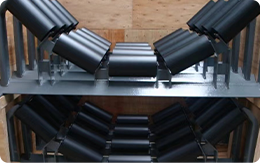 Afrikaans
Afrikaans  Albanian
Albanian  Amharic
Amharic  Arabic
Arabic  Armenian
Armenian  Azerbaijani
Azerbaijani  Basque
Basque  Belarusian
Belarusian  Bengali
Bengali  Bosnian
Bosnian  Bulgarian
Bulgarian  Catalan
Catalan  Cebuano
Cebuano  Corsican
Corsican  Croatian
Croatian  Czech
Czech  Danish
Danish  Dutch
Dutch  English
English  Esperanto
Esperanto  Estonian
Estonian  Finnish
Finnish  French
French  Frisian
Frisian  Galician
Galician  Georgian
Georgian  German
German  Greek
Greek  Gujarati
Gujarati  Haitian Creole
Haitian Creole  hausa
hausa  hawaiian
hawaiian  Hebrew
Hebrew  Hindi
Hindi  Miao
Miao  Hungarian
Hungarian  Icelandic
Icelandic  igbo
igbo  Indonesian
Indonesian  irish
irish  Italian
Italian  Japanese
Japanese  Javanese
Javanese  Kannada
Kannada  kazakh
kazakh  Khmer
Khmer  Rwandese
Rwandese  Korean
Korean  Kurdish
Kurdish  Kyrgyz
Kyrgyz  Lao
Lao  Latin
Latin  Latvian
Latvian  Lithuanian
Lithuanian  Luxembourgish
Luxembourgish  Macedonian
Macedonian  Malgashi
Malgashi  Malay
Malay  Malayalam
Malayalam  Maltese
Maltese  Maori
Maori  Marathi
Marathi  Mongolian
Mongolian  Myanmar
Myanmar  Nepali
Nepali  Norwegian
Norwegian  Norwegian
Norwegian  Occitan
Occitan  Pashto
Pashto  Persian
Persian  Polish
Polish  Portuguese
Portuguese  Punjabi
Punjabi  Romanian
Romanian  Russian
Russian  Samoan
Samoan  Scottish Gaelic
Scottish Gaelic  Serbian
Serbian  Sesotho
Sesotho  Shona
Shona  Sindhi
Sindhi  Sinhala
Sinhala  Slovak
Slovak  Slovenian
Slovenian  Somali
Somali  Spanish
Spanish  Sundanese
Sundanese  Swahili
Swahili  Swedish
Swedish  Tagalog
Tagalog  Tajik
Tajik  Tamil
Tamil  Tatar
Tatar  Telugu
Telugu  Thai
Thai  Turkish
Turkish  Turkmen
Turkmen  Ukrainian
Ukrainian  Urdu
Urdu  Uighur
Uighur  Uzbek
Uzbek  Vietnamese
Vietnamese  Welsh
Welsh  Bantu
Bantu  Yiddish
Yiddish  Yoruba
Yoruba  Zulu
Zulu Exploring the Dynamics and Effects of Roller Impact in Various Applications and Environments
The Impact of Roller Technology on Various Industries
The roller technology has significantly transformed various industries, ranging from manufacturing to entertainment. The innovation in roller design and functionality has led to increased efficiency, productivity, and safety in numerous applications. This article explores the various impacts of roller technology, highlighting its implications across different sectors.
Manufacturing
One of the most significant impacts of roller technology is observed in the manufacturing sector. Rollers are crucial components in conveyor systems, facilitating the smooth and efficient movement of goods. The introduction of advanced roller designs, such as conveyor rollers with improved load-bearing capabilities and reduced friction, has revolutionized manufacturing processes. This enhancement leads to faster production cycles, reduced energy consumption, and minimized wear and tear on machinery. Companies can operate with higher efficiency, ultimately resulting in lower operational costs and increased profitability.
Furthermore, rollers are integral in the processing of raw materials. For instance, in the steel industry, rollers are used in the rolling mills to shape and size the metal. The precision offered by modern roller technology allows for the production of high-quality steel with consistent specifications. This level of precision is critical not only for meeting customer demands but also for adhering to industry standards, contributing to overall market competitiveness.
Logistics and Transportation
In logistics and transportation, roller systems play a pivotal role in the movement of goods. Automated guided vehicles (AGVs) and conveyor belts equipped with advanced rollers have enhanced efficiency and safety in warehouses. By automating the loading and unloading processes, businesses can minimize human error, reduce labor costs, and optimize space. This transition towards automation, propelled by roller technology, allows manufacturers and distributors to keep pace with the growing demand for quick and reliable delivery systems in the e-commerce landscape.
The impact of roller technology extends to the transportation of materials as well. For example, in airports, roller beds are used for baggage handling, ensuring that luggage moves quickly and safely from check-in to the aircraft. This efficiency not only improves customer satisfaction but also streamlines operations for airlines.
roller impact

Construction and Civil Engineering
In the construction industry, roller technology is essential for compaction processes. Rollers are used to compact soil, asphalt, and other materials to ensure stability and durability in structures. The introduction of vibration rollers has enhanced the effectiveness of compaction, enabling workers to achieve the desired density with less energy consumption. This efficiency translates to cost savings and improved project timelines, contributing to smoother construction operations.
Additionally, advancements in roller technology have led to the development of specialized rollers for various construction projects. For example, landfill operations now utilize rollers designed for specific waste types, optimizing the compaction process and prolonging the lifespan of landfill sites. This innovation not only addresses environmental concerns but also promotes sustainable practices within the industry.
Entertainment and Sports
Beyond industrial applications, roller technology has made a significant impact in entertainment and sports. Roller rinks have become popular destinations for recreation, fitness, and socialization. The design of roller skates and the rink surfaces has evolved to enhance user experience, making roller skating a safer and more enjoyable activity.
Moreover, roller technology is utilized in theme parks for roller coasters and rides, where the mechanics of the rollers play a crucial role in ensuring safety and performance. Innovations in design and materials have led to smoother rides that provide thrill-seekers with an exhilarating experience while ensuring adherence to safety standards.
Conclusion
In conclusion, the impact of roller technology is vast and multifaceted, influencing various industries significantly. From improving efficiency and safety in manufacturing and logistics to enhancing construction processes and providing recreational experiences, roller technology continues to evolve. As industries strive for greater productivity and sustainability, the role of roller systems will undoubtedly expand, paving the way for further innovations that benefit society as a whole.
-
Wing Pulley Conveyor for Conveyor Belt MaintenanceNewsJun.16,2025
-
Self Cleaning Spiral Idler for Conveyor DesignNewsJun.16,2025
-
Pulley Lagging for Conveyor Belt AlignmentNewsJun.16,2025
-
Impact Idlers Used in Belt Conveyor for PerformanceNewsJun.16,2025
-
Ceramic Lagging Conveyor Pulley for Conveyor Belt SystemsNewsJun.16,2025
-
Belt Conveyor Idler for Heavy-Duty ApplicationsNewsJun.16,2025





























